Looking Up, 16-page English PDF Edition, Back Issues and Current Issue
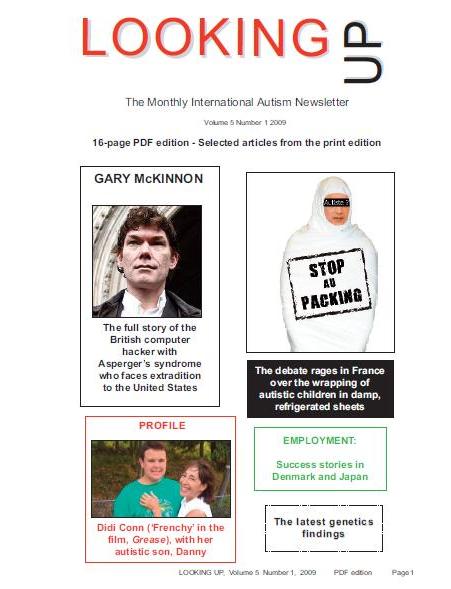
|
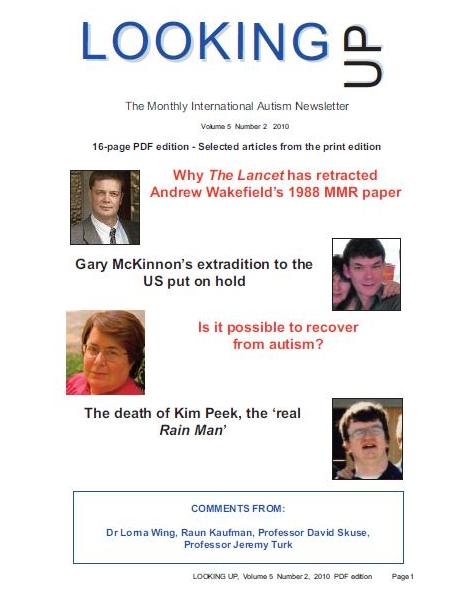
|
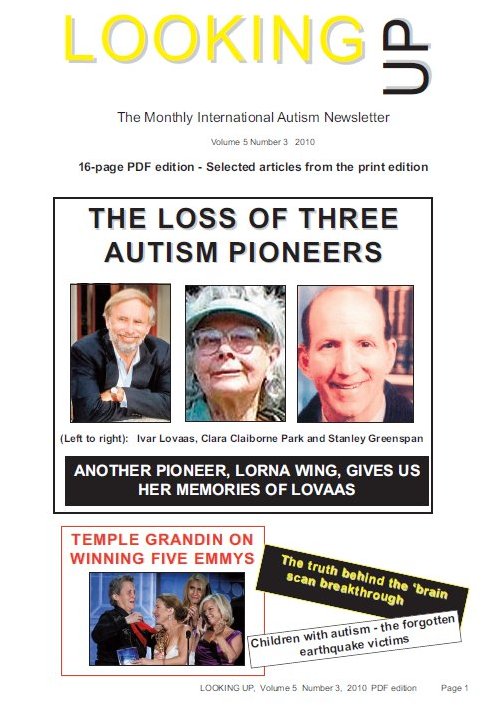
|
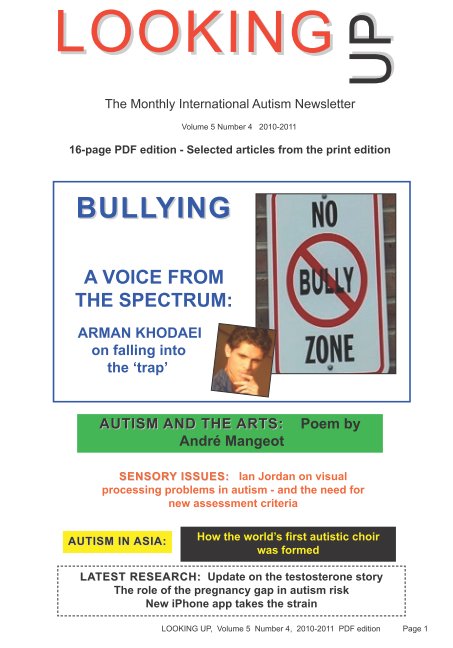
|
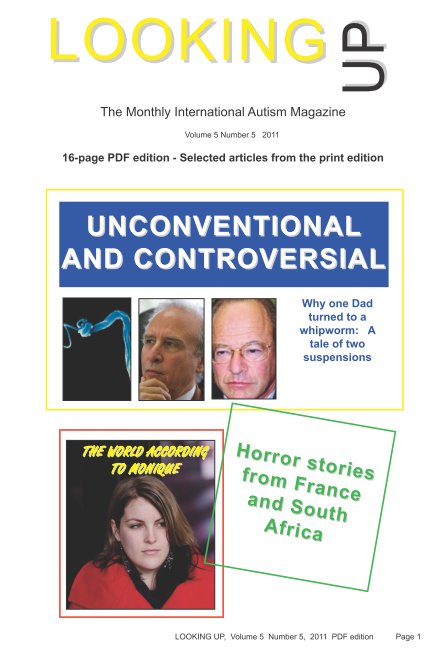
|
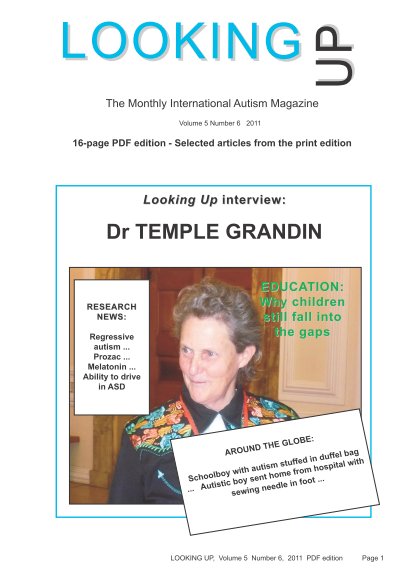
|
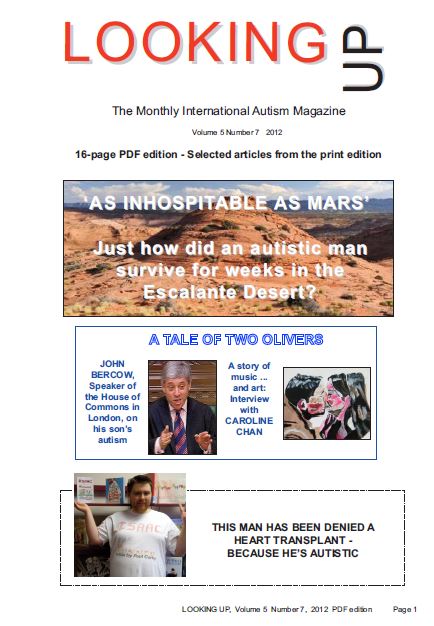
|
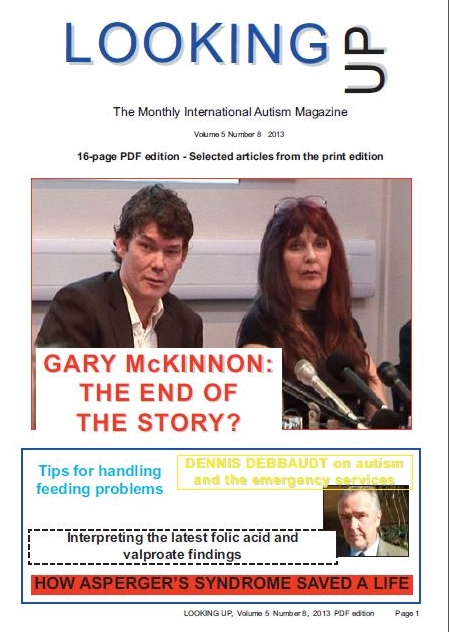
|
| Home page | Subscribe (print edition) | Selected articles | Our publications | Our mailing lists |
| PDF edition | Subscribe (PDF edition) | Back issue contents | Autism books | Contact us |
From Volume
5 Number 3 (print
and PDF editions)
OXFORD, UK: A simple test that could revolutionise the diagnosis of autism might be available within just three years.
The kit would use a few drops of blood to help doctors decide if a child has the condition, speeding up diagnosis and allowing treatment to start earlier.
The test, which Oxford University researchers believe could be in National Health Service clinics by 2013, would capitalise on the results of a landmark genetic study into the root causes of autism.
In the largest study of its kind, 120 scientists and doctors from 50 universities around the world compared the DNA of more than 1,000 children with autism and their parents with the genetics of more than 1,300 other people.
They found that in autism, large chunks of DNA are likely to be duplicated or erased, damaging genes and interrupting their vital work.
The children involved had many different insertions or deletions - known as copy number variants - but the end result was the same, the journal Nature reports.
Some of the damaged genes are key to the development of the brain and the transmission of messages.
Although some were known to be involved in autism before, others have been implicated in the condition for the first time.
Autism and related conditions such as Asperger’s syndrome affect more than one in 100 British children - ten times as many as just 30 years ago.
With the causes unclear, diagnosis is a lengthy and stressful process of hospital visits and psychological tests, and there are no drugs that can tackle the condition at its root.
The latest research shines a light on the causes, providing scientists with the information they need to formulate drugs and create blood tests.
Experts said it brought hope of a “brighter future” to the millions of families who struggle with autism every day.
Canadian researcher Dr Stephen Scherer said: “The results will lead to a paradigm shift when it comes to understanding the root causes of autism.”
Professor Tony Monaco, who led the Oxford team, likened autism research to trying to put together a jigsaw - with the latest findings equivalent to the vital pieces that make up the edges.
He said: “This consortium of scientists and clinicians has really
been trying to put together a very large jigsaw puzzle without having
the benefit of a nice colourful picture on the box.
“In this paper, the copy number variants that we have found were
probably the easiest thing we could have found. They frame this
jigsaw puzzle, they are the pieces with the edges. And they give us an
idea of what the picture may look like, because you can group them
together and say that some are representing the sky or the ocean or
the sand of the picture.”
Tests that pick up copy number variants are already used in the diagnosis of learning disabilities and Dr Monaco and Newcastle University colleagues are poised to carry out a pilot study of a test for autism.
He said: “Just knowing about these genetic changes can help families come to terms with why their child has autism but can also be important where there are siblings too in determining future risk.”
The results would allow parents to be counselled on the odds of their having a further child with the condition. However, it would pick up only 15 to 20 per cent of cases - although further genetic studies could improve on this.
Trinity College Dublin researcher Dr Louise Gallagher said:
“Currently, autism diagnosis is entirely behavioural and lengthy and
parents are subjected to a long process where their child is being
assessed and some children are not getting a diagnosis until as late
as five years old.
“With earlier detection, these children could get earlier
interventions which may limit the severity of the condition.”
Dr Geraldine Dawson, of the US charity Autism Speaks, which part-funded the study, said: “These findings bring hope to many families who struggle with autism every day.”
Dr Jenny Longmore, of the British charity, Autistica, which also provided funding, said: “It is a giant leap forward.”
But the National Autistic Society cautioned that the fruits of the research were a long way off - and said that autistic children and adults needed more support in the here and now.
For instance, many children with autism were not receiving the help they needed to deal with associated mental health problems such as depression and obsessive compulsive disorders.
The NAS’s Dr Gina Gómez de la Cuesta said: “Research into autism is
constantly evolving but the exact causes are as yet still unknown. The
difficulty of establishing gene involvement is compounded by the
interaction of genes with the environment. Genetic testing for autism
is still a long way off, given that autism is so complex.
“Whilst it is very important that research continues, it is also
crucial that those living with the condition have access to
appropriate advice and information, as the right support at the right
time can make an enormous difference to people's lives.”
Scientists at Imperial College London are also developing a diagnostic test but it is based on research showing that people with autism have different bugs in their guts from others.

|

|

|

|

|

|

|

|
| Current 40-page print edition issue | |||||||||||||||
|---|---|---|---|---|---|---|---|---|---|---|---|---|---|---|---|
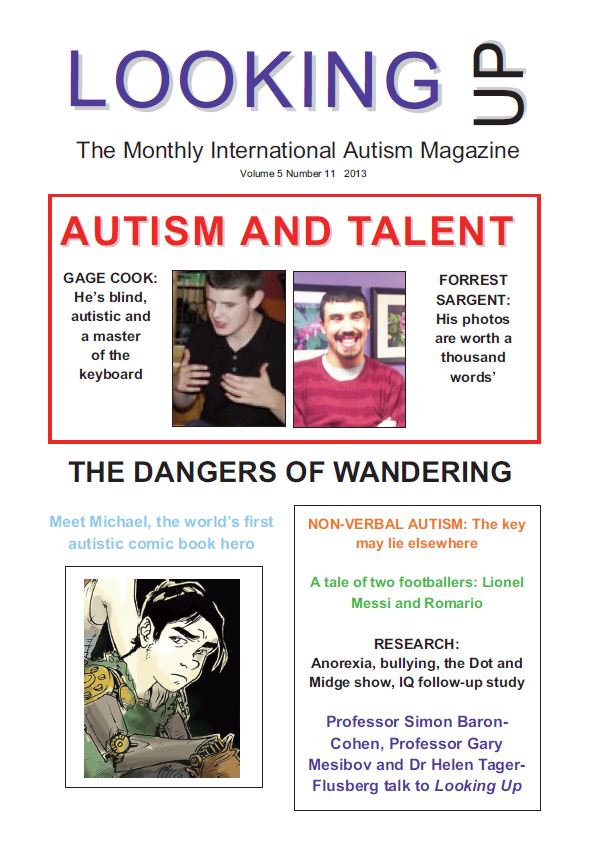
|
| ||||||||||||||
| PRINT EDITION BACK ISSUE CONTENTS AND FRONT COVERS | ||||||||||||||||||||||||||
|---|---|---|---|---|---|---|---|---|---|---|---|---|---|---|---|---|---|---|---|---|---|---|---|---|---|---|
| VOLUME 1, Number: | 1 | 2 | 3 | 4 | 5 | 6 | 7 | 8 | 9 | 10 | 11 | 12 | VOLUME 2, Number: | 1 | 2 | 3 | 4 | 5 | 6 | 7 | 8 | 9 | 10 | 11 | 12 | |
| VOLUME 3, Number: | 1 | 2 | 3 | 4 | 5 | 6 | 7 | 8 | 9 | 10 | 11 | 12 | VOLUME 4, Number: | 1 | 2 | 3 | 4 | 5 | 6 | 7 | 8 | 9 | 10 | 11 | 12 | |
| VOLUME 5, Number: | 1 | 2 | 3 | 4 | 5 | 6 | 7 | 8 | ||||||||||||||||||
| You can find our PDF EDITION CONTENTS AND COVERS on our PDF EDITION BACK ISSUES PAGE | ||||||||||||||||||||||||||
| Home page | Subscribe (print edition) | Selected articles | Our publications | Our mailing lists |
| PDF edition | Subscribe (PDF edition) | Back issue contents | Autism books | Contact us |